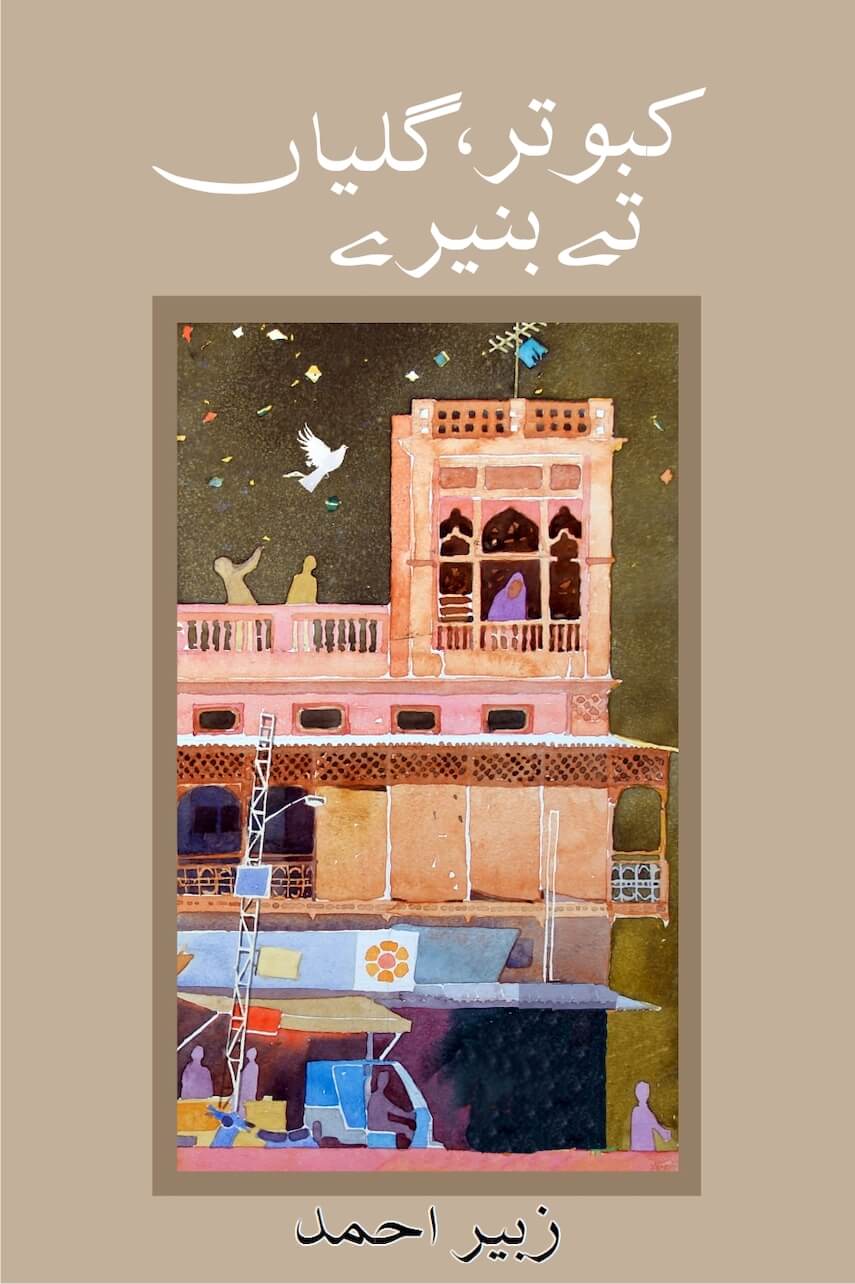
 Zubair Ahmad’s short stories in his book Kabutar, Banaire Te Galian are inspired by both the usual and unusual, by what actually happens and what may happen. Such happenings, tangible and intangible, provide the material that can become stuff of artistic narrative. Even non-happenings like dreams are, for him, nothing less than fragments of untold and untellable stories in need of narration and description. An important theme of Zubair’s stories is time; how it changes or transforms things, making the alive dead and the dead alive. But being a fiction writer, he does not conceive of time in abstraction. Rather we see time in terms of its effects, the pervasive marks it leaves on all aspects of life, both individual and collective. In his stories the forgotten past appears as a known and familiar territory, and the unforgettable present becomes a path leading to a deviously uncertain and uncertainly devious nowhere. It is there that his characters dwell. Nostalgia evokes dreams and dreams beget nostalgia. Sensitively constructed stories with artistic care reveal what we live with at both a conscious and sub-conscious level, connected to a past we think we have lost, and disconnected from a future we have yet to understand.
Zubair Ahmad’s short stories in his book Kabutar, Banaire Te Galian are inspired by both the usual and unusual, by what actually happens and what may happen. Such happenings, tangible and intangible, provide the material that can become stuff of artistic narrative. Even non-happenings like dreams are, for him, nothing less than fragments of untold and untellable stories in need of narration and description. An important theme of Zubair’s stories is time; how it changes or transforms things, making the alive dead and the dead alive. But being a fiction writer, he does not conceive of time in abstraction. Rather we see time in terms of its effects, the pervasive marks it leaves on all aspects of life, both individual and collective. In his stories the forgotten past appears as a known and familiar territory, and the unforgettable present becomes a path leading to a deviously uncertain and uncertainly devious nowhere. It is there that his characters dwell. Nostalgia evokes dreams and dreams beget nostalgia. Sensitively constructed stories with artistic care reveal what we live with at both a conscious and sub-conscious level, connected to a past we think we have lost, and disconnected from a future we have yet to understand.
